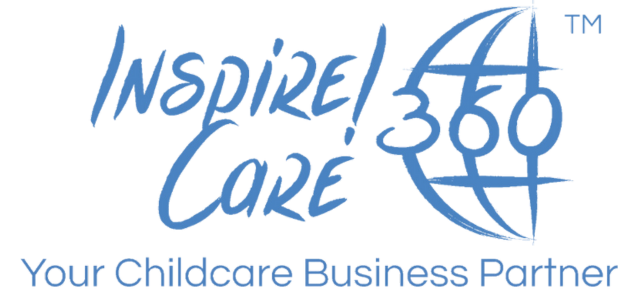
In the world of early childhood education, prioritizing professional development isn’t just an option — it’s a necessity. As childcare business owners, we wrestle with multifaceted challenges, ranging from retaining our staff to ensuring we have the resources to substain our businesses. In this blog post, let’s look at the issues that define professional development in our field.
One notable challenge is the struggle to carve out time and allocate resources for professional development. The daily demands of childcare are all-encompassing, leaving little room for educators to engage in the ongoing learning that is crucial for their growth. The absence of dedicated time for professional development can result in a stagnant workforce, hindering the ability of childcare providers to stay cognizant of the latest educational methodologies, child development research, and evolving best practices.
In addition to time constraints, the financial strains experienced by childcare business owners add another layer of complexity. For small-scale facilities, in particular, investing in comprehensive professional development programs can seem like a daunting task. The budget limitations faced by these establishments often translate into a lack of access to high-quality training opportunities and essential resources for the education team.
The financial hurdle is twofold. On one hand, there’s the direct cost of enrolling educators in relevant courses or workshops. On the other hand, there’s the indirect cost associated with the potential disruption to daily operations during staff members’ absence for training. The combination of these factors can create a scenario where even well-intentioned childcare owners find themselves caught in a bind, struggling to balance the financial health of their facility with the necessity of providing ongoing learning opportunities for their educators.
It is important for providers to discern and leverage the myriad of opportunities for professional growth. The key lies in the strategic investment in the development of staff, as this not only fosters a supportive environment for educators but also serves as a beacon for attracting and retaining top-tier talent within childcare centers.
Recognizing these opportunities involves a proactive commitment to providing avenues for ongoing learning and skill enhancement. This investment can take various forms, ranging from targeted training programs and workshops to facilitating participation in relevant conferences and seminars. By fostering an atmosphere that prioritizes professional development, childcare centers empower their educators to stay involved in the latest educational trends, innovations, and best practices.
The impact extends far beyond the individual growth of educators. It reverberates in the overall quality of education provided to young learners under their care. Well-equipped educators bring a fresh perspective and a wealth of knowledge to the classroom, creating an enriched and dynamic learning environment. The positive effects cascade down to the children, fostering a love for learning and laying a solid foundation for their future academic success.
The true value of these opportunities lies in their ability to transform a childcare center from a mere facility to a hub of educational excellence. As educators continue to evolve and expand their skill set, the entire institution benefits from a culture of continuous improvement. This commitment to professional growth becomes a defining characteristic, setting apart childcare centers that prioritize excellence in education from those that merely fulfill a functional role.
Professional development is the cornerstone of success. Overcoming challenges, seizing opportunities, and implementing best practices will not only enhance the skills of educators but also contribute to the overall quality of early childhood education. As childcare business owners invest in the growth of their teams, they are not just shaping individual careers but influencing the futures of the young minds they nurture.
Challenges in Early Childhood Education Professional Development
Retention of skilled staff and maintaining the required teacher-to-student ratio remain hurdles for childcare and daycare business owners. The nature of the job is demanding, requiring educators to navigate a multitude of responsibilities with a high level of dedication. Without the proper support structures in place, these professionals may find themselves teetering on the edge of burnout.One notable challenge is the struggle to carve out time and allocate resources for professional development. The daily demands of childcare are all-encompassing, leaving little room for educators to engage in the ongoing learning that is crucial for their growth. The absence of dedicated time for professional development can result in a stagnant workforce, hindering the ability of childcare providers to stay cognizant of the latest educational methodologies, child development research, and evolving best practices.
In addition to time constraints, the financial strains experienced by childcare business owners add another layer of complexity. For small-scale facilities, in particular, investing in comprehensive professional development programs can seem like a daunting task. The budget limitations faced by these establishments often translate into a lack of access to high-quality training opportunities and essential resources for the education team.
The financial hurdle is twofold. On one hand, there’s the direct cost of enrolling educators in relevant courses or workshops. On the other hand, there’s the indirect cost associated with the potential disruption to daily operations during staff members’ absence for training. The combination of these factors can create a scenario where even well-intentioned childcare owners find themselves caught in a bind, struggling to balance the financial health of their facility with the necessity of providing ongoing learning opportunities for their educators.
It is important for providers to discern and leverage the myriad of opportunities for professional growth. The key lies in the strategic investment in the development of staff, as this not only fosters a supportive environment for educators but also serves as a beacon for attracting and retaining top-tier talent within childcare centers.
Recognizing these opportunities involves a proactive commitment to providing avenues for ongoing learning and skill enhancement. This investment can take various forms, ranging from targeted training programs and workshops to facilitating participation in relevant conferences and seminars. By fostering an atmosphere that prioritizes professional development, childcare centers empower their educators to stay involved in the latest educational trends, innovations, and best practices.
The impact extends far beyond the individual growth of educators. It reverberates in the overall quality of education provided to young learners under their care. Well-equipped educators bring a fresh perspective and a wealth of knowledge to the classroom, creating an enriched and dynamic learning environment. The positive effects cascade down to the children, fostering a love for learning and laying a solid foundation for their future academic success.
The true value of these opportunities lies in their ability to transform a childcare center from a mere facility to a hub of educational excellence. As educators continue to evolve and expand their skill set, the entire institution benefits from a culture of continuous improvement. This commitment to professional growth becomes a defining characteristic, setting apart childcare centers that prioritize excellence in education from those that merely fulfill a functional role.
Best Practices for Professional Development
- Mentoring Programs: Implementing mentoring programs within the childcare center can be a powerful tool for professional development. Experienced educators can guide newer staff members, sharing insights and strategies that come from years of hands-on experience.
- Hands-On Training: Incorporating hands-on training into professional development programs allows educators to directly apply new skills in a real-world setting. Practical experience enhances the learning process and ensures that concepts are easily transferable to the classroom.
- Online Courses: Online courses offer flexibility and accessibility, allowing educators to engage in professional development at their own pace. Platforms like Inspire University from Inspire Care 360 provide a wide range of courses specifically designed for early childhood educators.
- Reference Sheets and Job Aids: Providing reference sheets and job aids can serve as quick and accessible resources for educators. These materials act as handy reminders of best practices and can be easily integrated into daily teaching routines.
Overcoming Financial Strains
While financial constraints may be a reality for many childcare business owners, creative solutions can still be found. Collaborating with local educational institutions, seeking grants, or exploring community partnerships can help secure funding for professional development initiatives. By prioritizing and budgeting for staff development, childcare businesses can make a significant investment in the long-term success of their center.Attracting Top-Tier Staff
The competition for qualified early childhood educators is fierce. Offering robust professional development opportunities is a key strategy for attracting and retaining top-tier staff. When educators feel supported and invested in, they are more likely to stay committed to their roles, creating a positive impact on the children in their care.“Education is not the filling of a pail, but the lighting of a fire.”
– William Butler YeatsProfessional development is the cornerstone of success. Overcoming challenges, seizing opportunities, and implementing best practices will not only enhance the skills of educators but also contribute to the overall quality of early childhood education. As childcare business owners invest in the growth of their teams, they are not just shaping individual careers but influencing the futures of the young minds they nurture.
Find ECE Professional Development Support
Elevate your skills and enrich your career with our comprehensive Early Childhood Education professional development support.
Learn MoreYou may also like…
Are you interested in learning more about becoming
an Inspire Care 360 Member?
Click ‘Schedule a Tour’ to connect with our team today!






